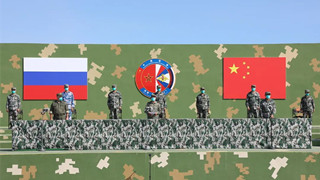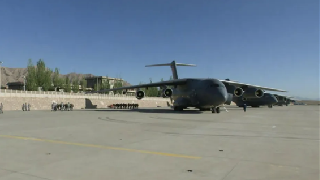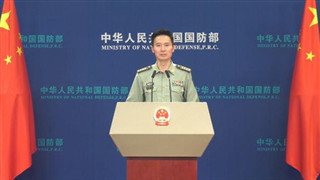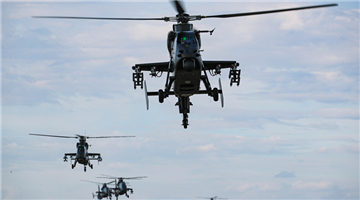Editor's note: To celebrate the 100th anniversary of the founding of the Communist Party of China, we are launching the “Outstanding CPC Members in the PLA” series, featuring the heroes and role models in the PLA who have made selfless dedication to defending the country, serving the people and building a strong military. The following is the 12th story of the series.
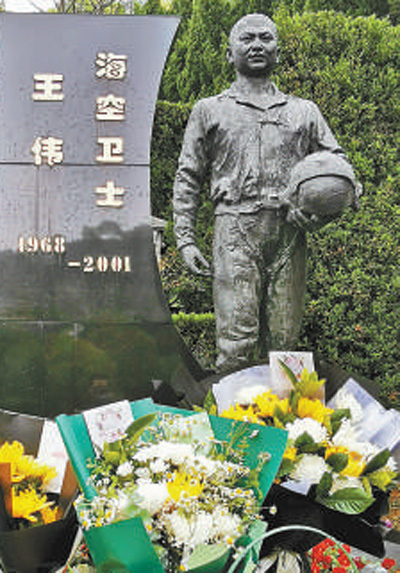
Martyr Wang Wei, a member of the Communist Party of China (CPC), laid down his life to defend China’s territorial airspace and waters on April 1, 2001.
Wang Wei was born in 1968 in Huzhou, Zhejiang Province. He was the first-class pilot and the squadron leader of an aviation regiment of the South China Sea Fleet of the PLA Navy.
Wang made up his mind to join the Chinese People’s Liberation Army to serve the country when he was a middle school student and became a pilot cadet of a military flying academy in June 1986. When he graduated in June 1991, Wang offered to serve in the navy – to join the naval aviation troops to guard the southern gate of the country, to be more specific.
Although his relatives and friends hoped that he could be assigned to Shanghai, Hangzhou or Changzhou near his hometown, Wang did not change his initial intentions and replied, “Everyone wishes to live a happy life, but there invariably should be people to make sacrifices. For me, the need of the motherland is always my only choice.” Soon after he was married, he convinced his parents and parents-in-law and persuaded his wife to abandon her comfortable life in Huzhou and make their home in his army unit.
During his 15-year flying career, Wang created many impressive “firsts”. In the Air Force Aviation University, he was the first to fly solo among pilot cadets of the same year; in the naval aviation regiment, he was the first to perform combat readiness flight mission during the three rounds of equipment update , and the first to fly 1,000 hours. Furthermore, Wang Wei was an all-weather pilot capable of flying in four complex meteorological conditions, he also topped his peers in carrying out combat takeoffs and performing major tasks.
On April 1, 2001, a US military reconnaissance aircraft entered the airspace over China’s Exclusive Economic Zone. Wang Wei piloted his fighter upon order to track and monitor it. During the flight, the American aircraft, defying repeated warnings, suddenly changed direction and collided with Wang’s fighter jet. Failing to save the fighter jet, Wang had no choice but to parachute into the sea.
The country launched a massive search for Wang, mobilizing more than 100,000 military and civilian rescuers despite the harsh environment and complicated weather on the sea. They searched for 14 days and nights, but their efforts didn’t bring Wang Wei back. He was confirmed dead at the age of 33.
On April 18, 2001, the Central Committee of the Communist Young League of China and the All-China Youth Federation (ACYF) conferred posthumously Wang Wei with the “May 4th Medal”. On April 24, the Central Military Commission awarded Wang Wei the honorary title of “Guardian of Territorial Airspace and Waters” and the Medal of First-Class Hero and Model.
?
